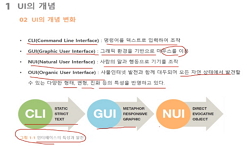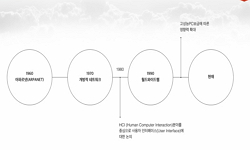Purpose The purpose of this study is to examine the customer experience of generative AI among office workers aged 30 to 40, investigating usability, usefulness, and affect, and understanding concerns and expectations. Design/Methodology/Approach ...
http://chineseinput.net/에서 pinyin(병음)방식으로 중국어를 변환할 수 있습니다.
변환된 중국어를 복사하여 사용하시면 됩니다.
- 中文 을 입력하시려면 zhongwen을 입력하시고 space를누르시면됩니다.
- 北京 을 입력하시려면 beijing을 입력하시고 space를 누르시면 됩니다.

생성형 인공지능 초기 단계의 사용자경험(UX):Q-방법론을 통해 살펴본 30-40대 직장인의 편의와 우려 = User Experience (UX) in the Early Days of Generative AI: The benefits and concerns of employees in their 30s and 40s through the Q-methodology
한글로보기https://www.riss.kr/link?id=A109018652
- 저자
- 발행기관
- 학술지명
- 권호사항
-
발행연도
2024
-
작성언어
Korean
- 주제어
-
등재정보
KCI등재
-
자료형태
학술저널
- 발행기관 URL
-
수록면
1-30(30쪽)
- 제공처
-
0
상세조회 -
0
다운로드
부가정보
다국어 초록 (Multilingual Abstract)
Design/Methodology/Approach This research used Q methodology to assess the customer experience of generative AI. Users are engaged in a problem-solving journey, and data is collected by having participants rank 36 statements based on usability, usefulness, and affect, referred to as the three goals of User Experience. Participants use a forced distribution table with a scale from -5 to +5 to indicate the subjective importance of each statement. The results identified four groups, reflecting different perspectives and attitudes toward generative AI.
Findings Participants express overall comfort with generative AI, perceive AI as more knowledgeable in unfamiliar domains, but harbor doubts about AI's understanding. Disagreements emerge on AI replacing humans, the value of unique human roles, data confidentiality, fears of AI advancement, and emotional impacts. Identified four groups: Users who treat AI as a soulless assistant and are active in business use, Uncle users who want to use new technologies properly and are not afraid of technology, users who recognize the limits of AI despite its efficiency, and users who require strong verification in the future. It has the potential to guide future guidelines, ethical codes, and regulations for the appropriate use of AI. In addition, this approach lays the groundwork for future empirical analyses of generative AI.
Purpose The purpose of this study is to examine the customer experience of generative AI among office workers aged 30 to 40, investigating usability, usefulness, and affect, and understanding concerns and expectations.
Design/Methodology/Approach This research used Q methodology to assess the customer experience of generative AI. Users are engaged in a problem-solving journey, and data is collected by having participants rank 36 statements based on usability, usefulness, and affect, referred to as the three goals of User Experience. Participants use a forced distribution table with a scale from -5 to +5 to indicate the subjective importance of each statement. The results identified four groups, reflecting different perspectives and attitudes toward generative AI.
Findings Participants express overall comfort with generative AI, perceive AI as more knowledgeable in unfamiliar domains, but harbor doubts about AI's understanding. Disagreements emerge on AI replacing humans, the value of unique human roles, data confidentiality, fears of AI advancement, and emotional impacts. Identified four groups: Users who treat AI as a soulless assistant and are active in business use, Uncle users who want to use new technologies properly and are not afraid of technology, users who recognize the limits of AI despite its efficiency, and users who require strong verification in the future. It has the potential to guide future guidelines, ethical codes, and regulations for the appropriate use of AI. In addition, this approach lays the groundwork for future empirical analyses of generative AI.
동일학술지(권/호) 다른 논문
-
기후변화에 따른 과수작물 재배지 변화 예측 연구: 한라봉을 중심으로
- 한국정보시스템학회
- 박혜은
- 2024
- KCI등재
-
시골장터 기반 로컬 커뮤니티가 지역활성화에 미치는 영향에 대한 온라인 네트워크 분석
- 한국정보시스템학회
- 박정선
- 2024
- KCI등재
-
농어민의 디지털 정보 활용 수준이 삶의 만족도에 미치는 영향: 디지털기기 이용 태도를 매개변수로
- 한국정보시스템학회
- 전봉춘
- 2024
- KCI등재
-
사용자 신뢰와 의인화가 ChatGPT의 지속적인 사용 의도에 미치는 영향
- 한국정보시스템학회
- 장지영
- 2024
- KCI등재




 KCI
KCI KISS
KISS






